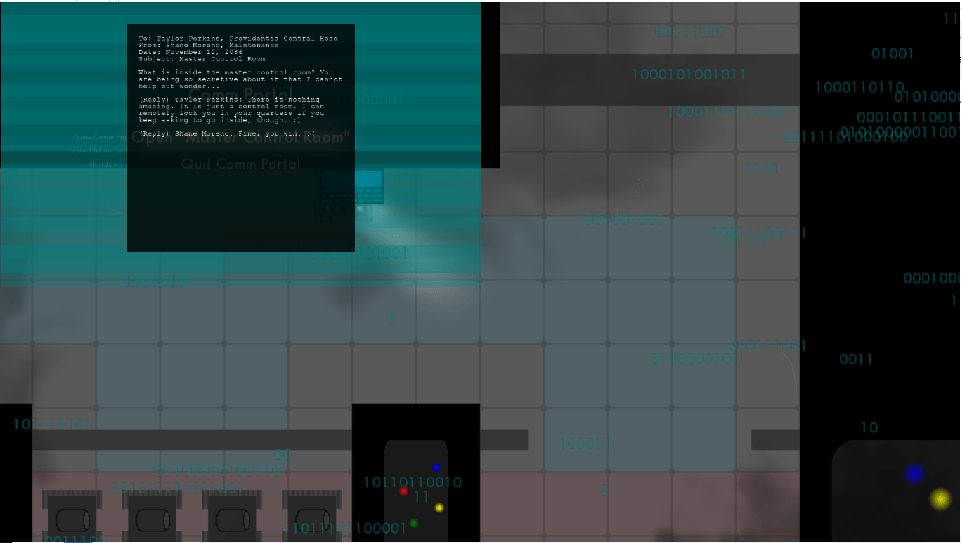Laser Maze is a clever game. Normally, this space here would be used for a general introduction, with my experience with puzzle video games at the forefront. I could do that, or I could make a joke about Columns, Tetris, Portal, and Quantum Conundrum. I could do that, or I could praise Laser Maze for what it is: a box-pushing, lens-moving, laser-blocking, button-pressing, think-fest. If getting me to think was what it set out to do then it achieved its goal perfectly. Laser Maze is not without its problems, but for all the problems it did have, there was never any desire to quit playing it. But what makes Laser Maze so good? What makes it a good if not great example of a puzzle video game in general? The answer, I believe, lies in refinement.
Laser Maze is nothing that I haven’t been seen before, and that’s one of its biggest strengths. I’m sure were I to describe the gameplay other games would come to mind. If I said “You use blocks to stop the flow of a laser into a switch”, I think everyone would make the obvious comparison to Portal; I certainly did! And yet, it’s here that Laser Maze starts showing how clever it is by using that knowledge it knows we have against us. It toys with our expectations and forces us to adapt. That could have easily been frustrating. Muscle memory (the brain is a muscle right?) could and did lead my approach to fail. I was approaching the game as if it were something that it wasn’t. This is going to sound like an oxymoron, but the thought Laser Maze is the same thing we’ve seen before isn’t quite right, it manages to carve itself an identity of its own.
It’s a deceivingly hard game, even though it looks simple. The game utilizes all of its characteristics in ways that improve it. The fact that it’s a 2D game, seen from a top down perspective affects the design in ways that it wouldn’t if it were a 3D first person game, like Portal which is what’s in the back of everyone’s mind! Walls don’t present the same sort of visual barrier, and workarounds have to be made. It’s all factored in, in what are some of the most complex puzzles I’ve seen in a while.

Puzzles have many different moving parts. They’re a multi-cogged beast in that they are divided into multiple parts, all requiring different solutions, even within the same puzzle. A typical puzzle provides an object and has the player twist and turn its placement several times at different stages of the solution. It’s never as simple as one button one switch, well, excluding tutorial anyways. Laser Maze’s puzzles leave me feeling like a certified genius when I get the solution. It’s different from most puzzle games where the solution just clicks after a while because, in Laser Maze, the process is multi-threaded. It’s like unraveling a knitted ball or knocking down a pile of dominoes. Small, unsure steps that lead to something bigger, in a chain-reaction.
A typical Laser Maze session would start with me doing the only thing I could do in a puzzle room, and moving from there. It streamlines the guessing game by giving a point to start, but it doesn’t guide the player afterwards. In fact, it’s a maze of decisions and options, and though the first step is always obvious, everything else is a twisty web of decisions…and I think I just got the title. Laser Maze’s gameplay is well designed and well executed. The puzzles, probably the most important part in any game of this genre, are well thought out, creative, and mind boggling, but it’s in presentation that the game falters.
It’s not that it doesn’t look particularly good, though there’s room for improvement of course. Nor is it that it’s blocky and box like, which is actually a net positive as it lends itself to the gameplay. Those were design decisions easily justifiable and of minor concern. It’s things that affect the experience, worsening it. Throughout the game there are terminals. They’re sometimes the end goal, as they allow parts of the world to change, such as activating or deactivating doors and lasers. They’re also the way to figure out the next goal. All that would be good except for the fact they’re completely unreadable (Editor’s Note: This is a glitch that happens because of some display settings, the dev is working on a fix).

I had to resort to screenshots and the Zoom tool in my image editor, it was that bad. Oobjectively, it’s a small thing, even a small thing that doesn’t really affect much, and there are workarounds, but it did affect my experience. This is not the only instance of lack of polish either. It’s not a big list, but they pop in here and there. The gameplay itself pushes it through to be a recommendation, but I get the feeling that another look through could have fixed those small issues.
Overall though, it’s a solid entry into the box pushing and switch flipping genre of video games. Move over Sokoban, this is the only box pushing I’ll be doing in the future.

Laser Maze was developed by -Yodasaurus- Games.
Laser Maze is available on Steam.
Laser Maze is available for 3.99. There is also a Demo.

A review copy was provided by the Developer.
Mcportugalem has awarded Laser Maze the Indie Gamer Team Seal of Approval.

